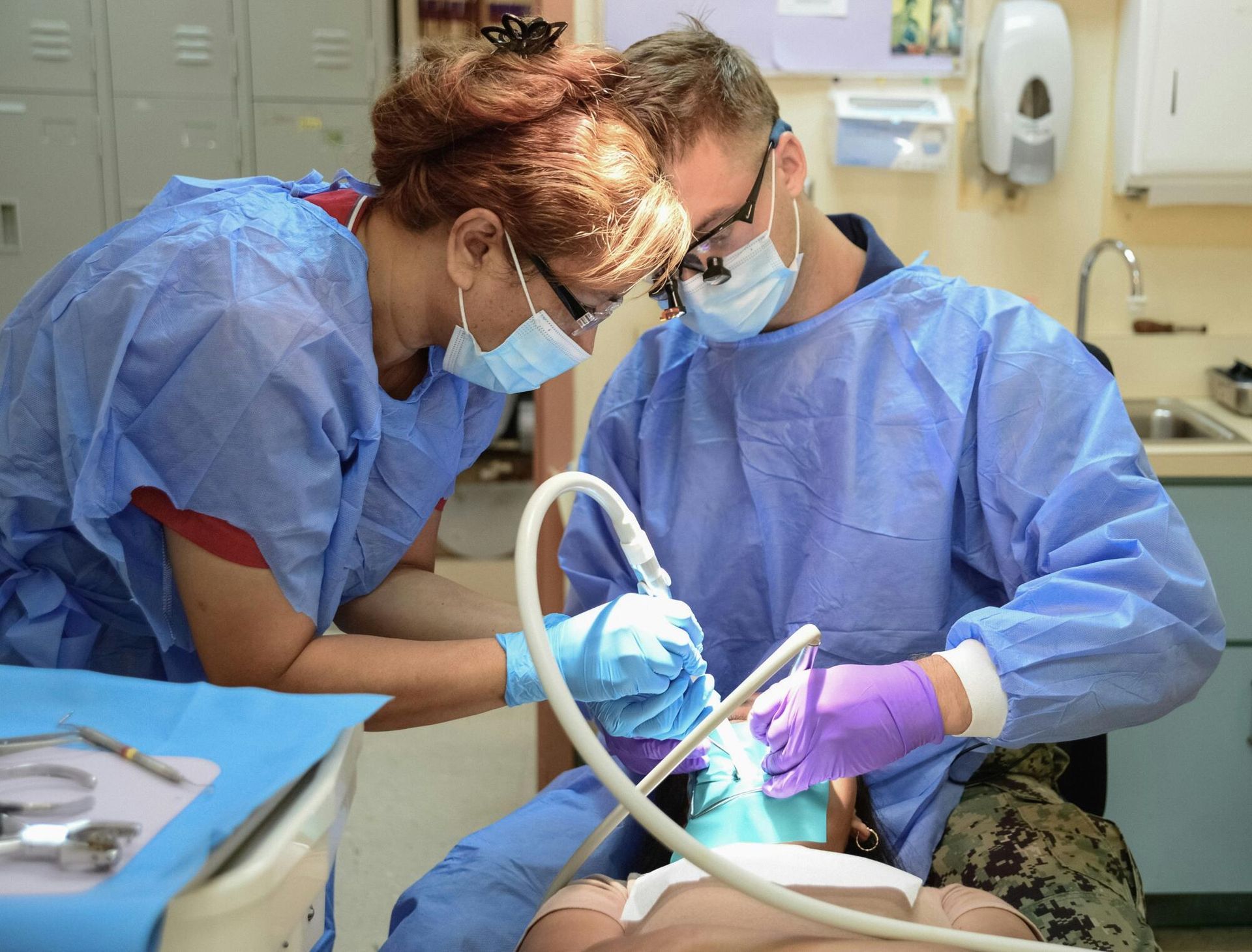Sleep Hygiene for TMJ

TMJ, or Temporomandibular Joint disorder, is a common ailment affecting between 5% and 12% of the general adult population here in the United States. More commonly impacting women and often emerging between the ages of 20 and 40, TMJ can significantly disrupt daily life, particularly when it comes to something as fundamental as sleep.
This blog post will examine how to sleep with TMJ. We'll highlight what TMJ is and explore practical strategies for improving sleep quality despite its challenges.
If you or someone in your family is suffering from TMJ, keep reading to learn more.
What Is TMJ?
TMJ refers to a condition affecting the jaw joint and surrounding muscles, leading to pain and dysfunction in the jaw area. TMJ symptoms can vary widely, including:
- Jaw pain or tenderness
- Difficulty chewing
- Clicking noises in the jaw
- Lockjaw
The causes of TMJ disorder are multifaceted and often stem from a combination of factors such as jaw injury, teeth grinding or clenching (bruxism), misalignment of the jaw or teeth, arthritis, stress, or even genetics. Habitual behaviors like chewing gum excessively or biting nails can also contribute to TMJ symptoms.
As noted above, TMJ can have a profound impact on sleep quality. The discomfort and pain associated with TMJ often worsen at night, making it challenging to fall asleep or stay asleep throughout the night.
Additionally, the tension and stress caused by TMJ can lead to heightened arousal during sleep, disrupting the natural sleep cycle and resulting in poor sleep quality overall.
The Role of Sleep Hygiene
Sleep hygiene refers to a set of practices and habits that promote quality sleep and overall well-being. This involves adhering to a regular sleep timetable, establishing a cozy sleep environment, and integrating relaxation practices prior to bedtime.
Good sleep hygiene is crucial for TMJ patients as it can help alleviate symptoms and improve overall sleep quality. TMJ sufferers can reduce discomfort and promote better sleep by prioritizing habits that support restful sleep, such as maintaining a relaxing bedtime routine and optimizing the sleep environment.
Poor sleep hygiene can exacerbate TMJ symptoms by prolonging sleep disturbances and increasing muscle tension. Irregular sleep patterns, exposure to stimulating activities before bed, and sleeping in an uncomfortable position can all contribute to worsened TMJ pain and discomfort during sleep.
Tips for Better Sleep With TMJ
First of all, maintaining proper head and neck alignment during sleep is crucial for TMJ sufferers. Using a supportive pillow that keeps the head and neck aligned with the spine can help reduce strain on the jaw joints and muscles.
Optimal sleep positions for TMJ sufferers include sleeping on the back or side, as these positions can alleviate pressure on the jaw. You should try to avoid sleeping on the stomach as this can prevent neck strain and minimize jaw discomfort.
Utilizing supportive pillows and mattresses can provide additional comfort and support for TMJ patients. Memory foam or contoured pillows designed to support the neck and shoulders can help maintain proper alignment and reduce pressure on the jaw.
Conscious efforts to avoid teeth grinding and jaw clenching during sleep are also important for reducing TMJ symptoms. Using a custom-fitted mouthguard or splint can help protect the teeth and prevent further damage to the jaw joints.
Additionally, implementing stress management techniques before bedtime, such as deep breathing exercises, meditation, or gentle stretching, can promote relaxation and reduce tension in the jaw muscles.
Finally, creating a calming sleep environment by minimizing noise, reducing light exposure, and maintaining a comfortable room temperature can help TMJ sufferers relax and unwind before bedtime, promoting better sleep quality.
Lifestyle Changes to Support TMJ Management
In addition to the above tips, there are a number of lifestyle changes that can support effective TMJ management and allow you to improve your sleep habits.
For example, diet modifications are crucial in reducing inflammation associated with TMJ. Incorporating anti-inflammatory foods such as fruits, vegetables, fatty fish, and nuts while limiting processed foods and refined sugars can help alleviate TMJ symptoms.
Incorporating relaxation techniques into daily routines can help manage stress and tension, which are common triggers for TMJ
symptoms. Techniques such as deep breathing exercises, meditation, yoga, and progressive muscle relaxation can promote relaxation and reduce jaw muscle tension.
Further to that point, regular exercise can positively impact TMJ symptoms by promoting overall physical health and reducing stress levels. Low-impact exercises such as walking, swimming, and cycling can help improve circulation, reduce muscle tension, and alleviate TMJ discomfort.
Also, regular dental check-ups are essential for TMJ management as they allow for early detection and treatment of dental issues that may contribute to TMJ symptoms.
For example, we can identify dental problems such as tooth misalignment, teeth grinding, or jaw clenching and recommend appropriate interventions to prevent further complications.
Seeking Professional Help for TMJ
It's advisable to consult a healthcare provider for TMJ if you experience persistent jaw pain, difficulty chewing or opening your mouth, or if you notice clicking or popping sounds in your jaw. Seeking early medical attention can help diagnose TMJ and initiate appropriate treatment.
Healthcare providers can offer a range of treatment options for TMJ, including conservative approaches such as lifestyle modifications, physical therapy, and medication, as well as more advanced interventions like:
- Dental treatments
- Orthodontics
- Surgery (in severe cases)
Personalized care is paramount for effective TMJ management. Dentists specializing in TMJ disorders, such as Dr. Bernard W. Lynch in Burke, VA, can provide individualized treatment plans tailored to your specific symptoms and needs. With personalized care, you can address TMJ symptoms effectively and improve your overall quality of life.
How to Sleep With TMJ
To sum up, learning how to sleep with TMJ requires a holistic approach, from adjusting sleep positions to seeking professional guidance.
By incorporating lifestyle changes, exploring dental treatments, and consulting experts like Dr. Bernard W. Lynch in Burke, VA, individuals can enhance their sleep quality and alleviate TMJ symptoms.
Contact us today to learn more about our TMJ dentistry services and how we can help you find effective nighttime TMJ relief. Click here to
schedule your appointment.












